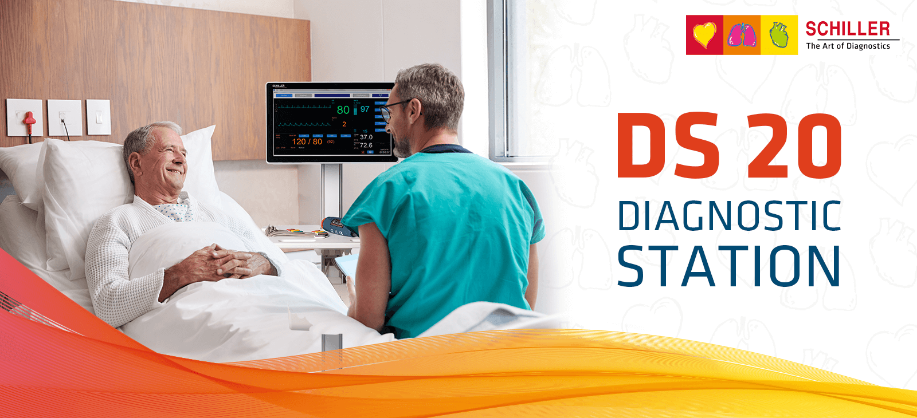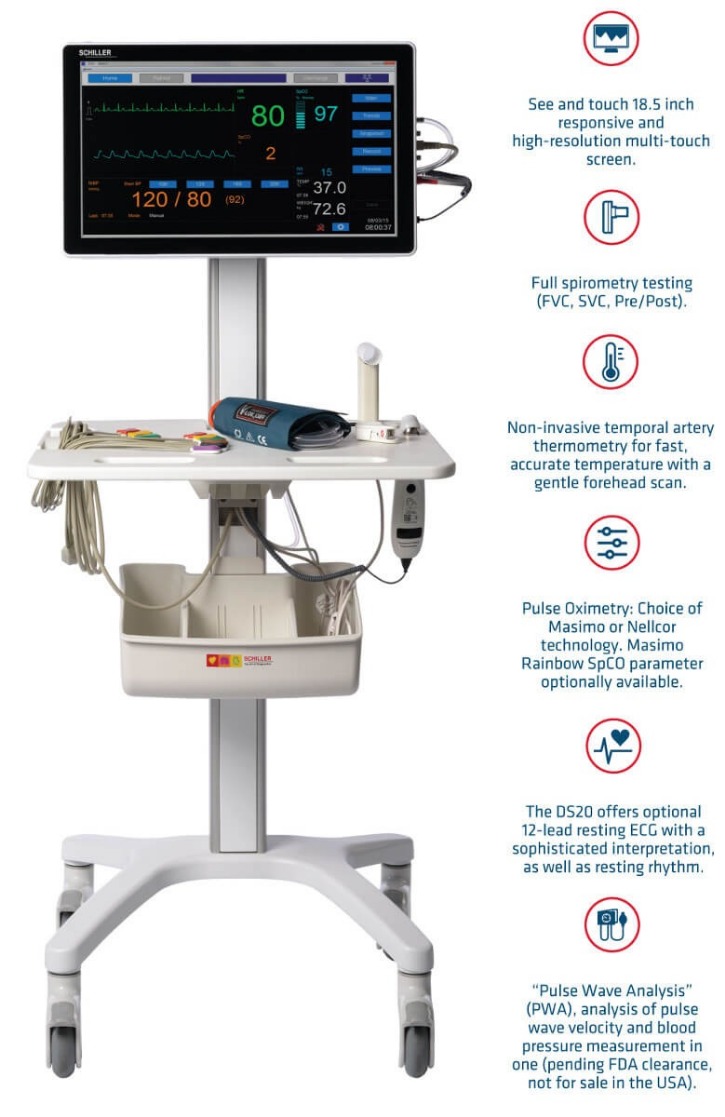DS20
Patient assessment in one deviceShorten the patient's screening time.Perform Triage in 3 minutes with only one device, which otherwise may take longer using multiple devices. Technology to simplify the most demanded functionsThe DS-20 performs Vital Signs (Temperature, NIBP, SPO2, HR, and Respiration Rate), Resting EKG, and Rhythm EKG all in one device. One Touch to the MeasurementTouch the large, high-resolution color display, and you are in business recording, and selecting the highest quality ECGs.
Clinical management of severe acute respiratory infection (SARI) when COVID-19 disease is suspected.Screening and triage: early recognition of patients with SARI associated with COVID-19 infection.Screen and isolate all patients with suspected COVID-19 at first point of contact with health care system (such as the emergency department or outpatient department/clinic). Consider COVID-19 as a possible etiology of patients with ARI under certain conditions. Triage patients using standardized triage tools and start first-line treatments. Remark 1.While the majority of people with COVID-19 have uncomplicated or mild illness (81%), some will develop severe illness requiring oxygen therapy (14%) and approximately 5% will require intensive care unit treatment. Of those critically ill, most will require mechanical ventilation (2, 10). The most common diagnosis in severe COVID-19 patients is severe pneumonia. Remark 2Early recognition of suspected patients allows for timely initiation of appropriate IPC measures. Early identification of those with severe illness, such as severe pneumonia (see Table 2), allows for optimized supportive care treatments and safe, rapid referral and admission to designated hospital ward or intensive care unit according to institutional or national protocols. Remark 3Older patients and those with comorbidities, such as cardiovascular disease and diabetes mellitus, have increased risk of severe disease and mortality. They may present with mild symptoms but have high risk of deterioration and should be admitted to a designated unit for close monitoring Remark 4For those with mild illness, hospitalization may not be required unless there is concern for rapid deterioration or an inability to promptly return to hospital; but isolation to contain/mitigate virus transmission should be prioritized. All patients cared for outside hospital (i.e. at home or non-traditional settings) should be instructed to manage themselves appropriately as per local/regional public health protocols for home isolation and return to designated COVID-19 hospital if they develop any worsening of illness. 
Request a demo and more information about the DS20Our team is ready for you to share more information. We are working for all our partners and customers to have an available inventory of all our products. Please don't hesitate to contact us for a remote demonstration. |